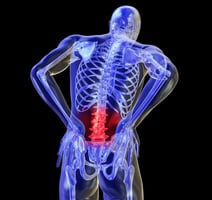Chronic Pain Associated With PTSD, Study Finds
 |
The findings “emphasize the importance of identifying and screening for PTSD in chronic pain populations, especially in those with severe and refractory pain,” Eeman Akhtar, M.D., of the University of Kansas Medical Center and colleagues wrote.
Individuals with comorbid pain and PTSD often report health problems with greater frequency, higher pain ratings, and increased functional impairment, according to the authors. To estimate the prevalence of PTSD symptoms in a population of patients with chronic pain, they invited patients aged 18 or older at a multidisciplinary pain clinic at the University of Kansas Medical Center to complete the Brief Trauma Questionnaire. Patients who reported they had experienced a traumatic event (defined as a direct or indirect exposure to a life threat or serious injury) or trauma (with no life threat or serious injury) were then assessed using the PTSD Symptom-Scale Self-Report.
Of the 265 patients with a self-reported history of chronic pain who were included in the analysis, 74 (28%) screened positive for PTSD symptoms—a value the authors noted is higher than the lifetime prevalence of PTSD in the general population (6.8%). Those who screened positive for PTSD symptoms were significantly younger and reported higher levels of pain intensity compared with those who screened negative for PTSD symptoms.
“Future longitudinal studies will be important to explore the exact time course of PTSD and chronic pain onset to determine any causal relationship, as well as to test treatment regimens in reducing symptoms of both chronic pain and PTSD,” the authors wrote.
For related information, see the Psychiatric News article “Psychiatrists Need to Be Prepared to Support Patients in Pain.”
(Image: iStock/PeopleImages)






